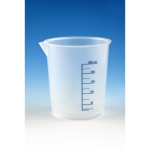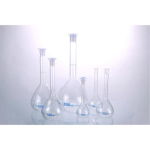- Home
- Lab Consumables
-
Lab Equipment
- Home
- Lab Equipment
- Autoclaves
- Cabinets
- Cappers/Decappers
-
Centrifuges
- Home
- Lab Equipment
- Centrifuges
- View All Centrifuges
- Benchtop Refrigerated Centrifuges
- Benchtop Ventilated Centrifuges
- Centrifuge Accessories
- Centrifuge Adapters
- Centrifuge Buckets
- Centrifuge Rotors
- Concentrators
- Floorstanding Centrifuges
- Micro Refrigerated Centrifuges
- Micro Ventilated Centrifuges
- Mini Centrifuges
- Centrifuge Spares
- Cooling Equipment
- Electrophoresis Equipment
- Freeze Drying
- Furniture
- General Lab Equipment
- Heating Equipment
- Liquid Handling
- Matting
- Optical Devices and Microscopes
- pH Measuring
- Printers and Scanners
- Rotary Evaporators
- Sample Preparation
- Shakers, Stirrers and Mixers
- Storage and Handling
- Surface Protection
- Testing and Measuring
- Thermal Cyclers
- Tubing
- Vacuum Equipment
- Water Purification
- Labware
-
Life Science
- Home
- Life Science
- Bioprocessing
- Blotting
- Cell Analysis
-
Cell Culture and Imaging
- Home
- Life Science
- Cell Culture and Imaging
- View All Cell Culture and Imaging
- Media
- Cell Counter Slide Cleaners
- Cell Counters
- Cell Culture Dishes
- Cell Culture Flasks
- Cell Culture Inserts
- Cell Culture Plates
- Cell Culture Reagents and Buffers
- Cell Culture Surface Treatment
- Cell Culture Tubes
- Cell Imaging Coverslips
- Cell Imaging Dishes
- Cell Scrapers
- Cell Strainers
- Chamber Slides
- Desalting and Dialysis
- Mycoplasma Testing
-
Electrophoresis
- Home
- Life Science
- Electrophoresis
- View All Electrophoresis
- Electrophoresis Accessories
- Electrophoresis Agarose
- Electrophoresis Buffer Solutions
- Electrophoresis Flashgel
- Electrophoresis Gel
- Electrophoresis IEF Strips
- Electrophoresis Kits
- Electrophoresis Ladders & Markers
- Electrophoresis Reagents
- Electrophoresis Sample Preparation
- Electrophoresis Stains
- ELISA
- Genomics and Molecular Biology
- Microbiology
- Microplates
- Protein Biology and Biochemistry
- Reagents
- PPE & Safety
- Cleaning
-
Lab Consumables
- Lab Equipment
-
Labware
-
-
Life Science
-
-
PPE & Safety
- Cleaning










